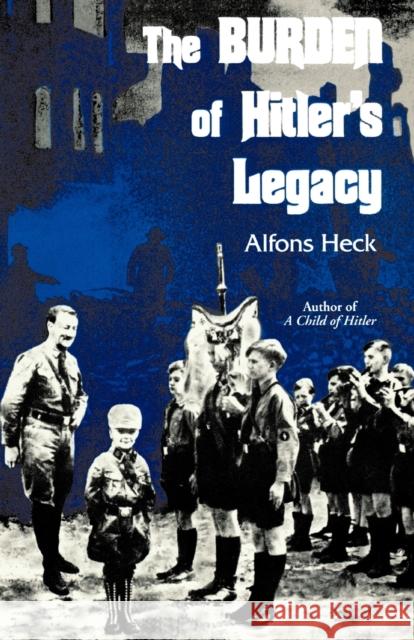Burden of Hitler's Legacy » książka
Burden of Hitler's Legacy
ISBN-13: 9780939650804 / Angielski / Miękka / 1998 / 276 str.
The Burden of Hitler's Legacy is Alfons Heck's incredible story of serving the Nazi regime, and the bitter disillusionment he suffered as the Germany he loved was battered into oblivion. Only in the waning days of World War II, did he begin to learn of the terror and cruelty that would come to characterize the Nazi reign. And only after years of soul-searching would he begin to accept the role that he had played. This complelling story complements and expands on Heck's autobiography, A Child of Hitler, in which he describes his childhood and life as a member and high-ranking leder of the Hitler Youth. The final chapters of the book introduce us to Heck's relationship with Helen Waterford, author of Commitment to the Dead and a survivor of the Aushwitz death camp. These two met in 1980 and formed a truly unique partnership. Heck and Waterford gave presentations side-by-side to audiences at more than 300 colleges and universities. The final chapter repeats many of the questions audiences would ask and Heck's answers. His openness provides much insight into the how's and why's of the Holocaust.
The Burden of Hitlers Legacy is Alfons Hecks incredible story of serving the Nazi regime, and the bitter disillusionment he suffered as the Germany he loved was battered into oblivion. Only in the waning days of World War II, did he begin to learn of the terror and cruelty that would come to characterize the Nazi reign. And only after years of soul-searching would he begin to accept the role that he had played. This complelling story complements and expands on Hecks autobiography, A Child of Hitler, in which he describes his childhood and life as a member and high-ranking leder of the Hitler Youth. The final chapters of the book introduce us to Hecks relationship with Helen Waterford, author of Commitment to the Dead and a survivor of the Aushwitz death camp. These two met in 1980 and formed a truly unique partnership. Heck and Waterford gave presentations side-by-side to audiences at more than 300 colleges and universities. The final chapter repeats many of the questions audiences would ask and Hecks answers. His openness provides much insight into the hows and whys of the Holocaust.











